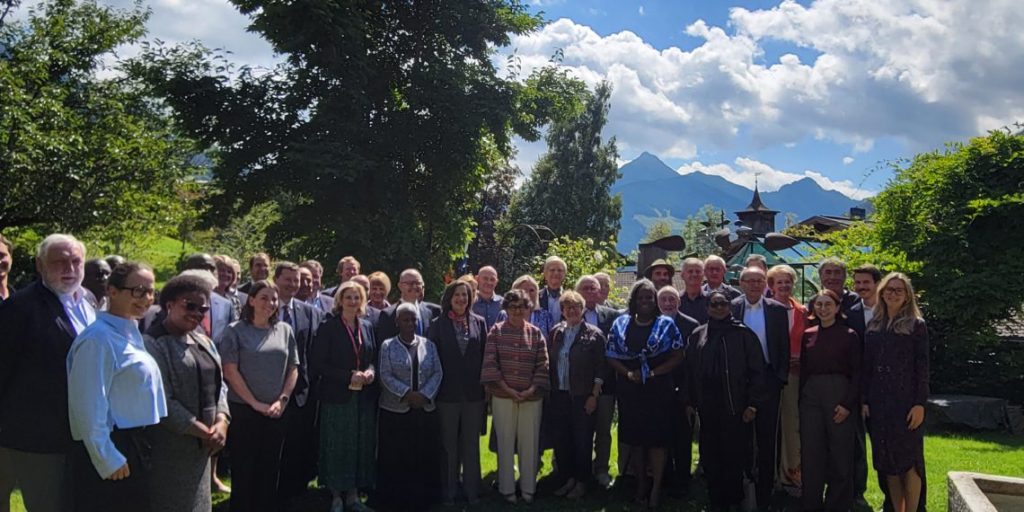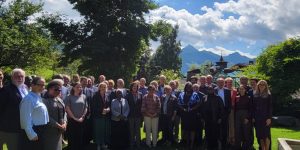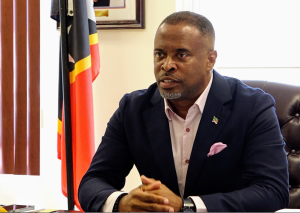St. Kitts and Nevis Advocates for CARICOM at the UN Charter’s 80th Anniversary during the UN General Assembly.
St. Kitts and Nevis, representing the Caribbean Community (CARICOM), delivered a resonant address at the United Nations on the 80th anniversary of the UN Charter, reaffirming the Caribbean’s commitment to multilateralism and its vision for a reformed global system. Ambassador Dr. Mutryce Williams emphasized the Charter’s enduring relevance as a cornerstone of international cooperation, highlighting the principle of sovereign equality among nations. Her address served as a powerful reminder of the Caribbean’s unwavering belief in the power of unity, principle, and the rule of law amidst escalating global challenges. She urged for a more inclusive and responsive UN, reflecting the evolving realities of the 21st century and the critical need to address emerging threats.
Ambassador Williams articulated CARICOM’s commitment to the core tenets of the UN Charter, emphasizing the interconnectedness of peace, development, and respect for international law. She strategically positioned the Charter not merely as a historical document but as a living covenant, a dynamic framework guiding the international community’s collective efforts towards a more just and equitable world. This framing underscored the importance of adapting and strengthening the UN system to effectively address contemporary challenges, ensuring its continued relevance and efficacy in promoting global peace and security.
The address highlighted the importance of adapting the UN system to address pressing global challenges, including climate change, sustainable ocean governance, and the reform of the international financial system. Ambassador Williams advocated for a human-centered approach to these challenges, emphasizing the need to prioritize human dignity and equity in global decision-making processes. This call to action resonated with the broader theme of the anniversary commemoration, which sought to reaffirm the UN’s foundational commitment to promoting human rights and fostering a world where all individuals can thrive.
CARICOM’s vision, as presented by Ambassador Williams, focused on four key areas: climate resilience, sustainable ocean governance, a transformed international financial system, and a human-centered approach to emerging technologies. Recognizing the unique vulnerabilities of small island developing states (SIDS) to climate change, she underscored the urgency of implementing the Paris Agreement and achieving the Sustainable Development Goals. This focus on climate resilience reflected the Caribbean’s lived experience and its deep understanding of the existential threat posed by rising sea levels and extreme weather events.
Regarding sustainable ocean governance, Ambassador Williams emphasized the importance of protecting marine ecosystems and ensuring the responsible use of ocean resources. This reflects CARICOM’s recognition of the vital role of the ocean in the region’s economies and cultures, as well as its commitment to preserving marine biodiversity for future generations. She advocated for enhanced international cooperation to address illegal, unreported, and unregulated fishing, marine pollution, and the impacts of climate change on ocean ecosystems.
Furthermore, the address called for a transformation of the international financial system to better serve the needs of developing countries, particularly SIDS. Ambassador Williams argued for greater access to concessional finance, debt relief, and innovative financing mechanisms to support sustainable development and climate resilience. This call for financial reform reflected the long-standing concerns of developing nations regarding the inequities of the global financial architecture and the need for a more just and equitable system.
Finally, Ambassador Williams emphasized the importance of adopting a human-centered approach to emerging technologies, ensuring that technological advancements contribute to human well-being and do not exacerbate existing inequalities. This forward-looking perspective acknowledged the transformative potential of technologies such as artificial intelligence and biotechnology, while also recognizing the potential risks and ethical considerations that must be addressed. She called for international cooperation to develop ethical frameworks and regulatory mechanisms to govern the development and deployment of these technologies. This call for a human-centered approach resonated with the UN’s broader commitment to promoting human rights and ensuring that technological progress benefits all of humanity.
In closing, Ambassador Williams reiterated CARICOM’s commitment to shaping the future of multilateralism, emphasizing the role of small island states as active and influential voices in the international arena. Her powerful address not only commemorated the 80th anniversary of the UN Charter but also served as a call to action, urging the international community to renew its commitment to the principles of the Charter and work together to build a more just, peaceful, and sustainable future for all. The address effectively conveyed the message that small island states, despite their size, possess significant influence and play a crucial role in shaping global discussions and advocating for solutions to pressing global challenges. Their unique perspectives and experiences are invaluable in navigating the complexities of the 21st century and building a more inclusive and resilient world.
Share this content:







Post Comment